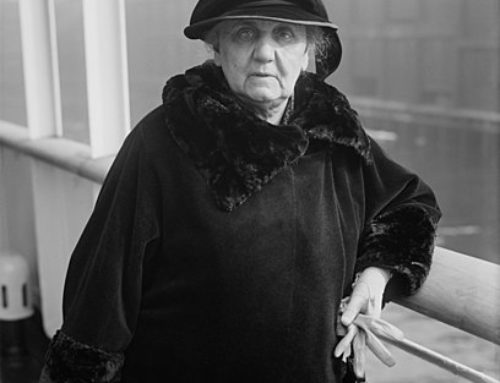Book Review: Mistress of the Vatican: The True Story of Olimpia Maidalchini: The Secret Female Pope (17th-century Scarlett O’Hara)
By Eleanor Herman
Overview
The author, Eleanor Herman, provided a spectacular account of Olimpia’s incredible life and rise to power in 17th-century Italy. As the sister-in-law of Pope Innocent X, Olimpia was his closest adviser, would-be lover, and indisputably the authority behind the robes, which earned her the title of papessa, or lady pope. Olimpia’s legacy was a scandal for the Church, and a good deal was written about her during and after her time. With this immensely readable and compelling book, Herman has reopened the Maidalchini file and presents a very detailed historical account of a real woman who strove to overcome male domination and live her own life. An expert on—and descendant of—European royal families, she skillfully used letters, diaries, newssheets of the time, and biographies to tell this personal tale, set during unforgiving times.
Herman told the fantastic story of a tax collector’s daughter from Viterbo who finagled her way into a position of power at the Vatican… Herman nimbly navigates centuries of foggy papal history, providing plenty of gossip and slander about flagrant nepotism and other pontifical sins. She casts Olimpia’s story appropriately enough in soap-opera terms, making her feisty protagonist resemble a 17th-century Scarlett O’Hara.
This nonfiction account of Olimpia Maidalchini (1591-1657) who was the skirt behind Pope Innocent X (reined 1644-1655) is a fascinating biography of an intelligent and independent woman. Olimpia was indeed ahead of her time.
The book provided an eye-opening account of the Catholic church of the 17th century. In brief, the Catholic Church remained corrupt despite the reformation. Olimpia’s rise reflected a combination of intelligence, cleverness, courageousness and beauty. Until her banishment in 1650 because she finally went too far in her demands to control everything in the Vatican, she appeared to defy the laws of gravity. Olimpia’s demands reflected what was good for her and not the pope, the church, the people or the people. She made and accepted as much bribes as possible. While she certainly was not a “saint” I was saddened when she was banished from Rome. In today’s terms, she made a “hell of a run.”
Early Life
That is, she successfully defied her father who wanted to place her in a nunnery. Because the availability of young women to reproduce new Catholics was dwindling, the church declared that no girl could be placed in a covenant without her consent. Only 15 years old, Olimpia went directly to the bishop, accusing the priest of sexual abuse and her father of trying to force her hand, and thus Olimpia had her first experience in getting what she wanted, or in this case, what she didn’t want. However, for the rest of her life she was shaped by the fear of being controlled by men.
Olimpia took advantage of this law to escape a horrendous fate of being a nun. Convents at the time were dismal places. Nuns lived in tiny cells with no comforts. All windows faced inward, so the women could see only the convent’s courtyard and never the outside world. They were not allowed to chitchat with other nuns. Some were so love-starved that they adopted convent chickens which resulted in floors being covered in poultry droppings.
Olimpia’s Rise
At age 17, she was married into a wealthy family despite her small dowry, but her husband died within a few years. She made a second marriage into a noble family that was down on its luck and thrilled to have Olimpia’s fortune, while Olimpia received the social status of nobility that she desired.
Her second husband’s brother, a priest, was in a position to resolve family disputes and other legal matters, but the man was hopelessly indecisive. He often consulted his sister-in-law, Olimpia, who understood each problem and devised expert solutions. Evidently, he could not make a decision without her. When he was sent to Spain, people respected his sound judgment, but complained that it nearly always took two months for him to make decisions, the time it took for letters to travel to Rome and back with Olimpia’s advice.
Through cunning, bribes, promises, flattery, and deals which diluted the power of her enemies and increased her family’s standing, Olimpia worked for years to position her brother-in-law to become a Cardinal and eventually to be elected Pope Innocent X.
Pope Innocent X
Innocent was, by 17th-century standards, rather incorrupt, but Olimpia who enjoyed both power and wealth, used every means possible to acquire what she wanted by being the brains behind the pope. Innocent’s brother, Olimpia’s husband, had died so there were rumors that the pope and Olimpia were lovers, perhaps even before the death of her husband.
She wheeled and dealed with everyone, accepting a fortune in “gifts” to influence the pontiff. Through cunning, bribes, promises, flattery, and deals which diluted the power of her enemies and increased her family’s standing, Olimpia worked for years to position her brother-in-law to become a Cardinal and eventually to be elected Pope Innocent X.
To put it bluntly, the election of Pope in that era made “Chicago politics” look benign. The election required huge ransoms, threats, and resorting to every conceivable infraction.
Vatican: Sex and Corruptness in the “City”
Underlying Olimpia’s story is the history of the church at the time. Corruption was so rampant and the populous so angry, that it is a wonder the Catholic Church survived. It must have endured only by instilling the fear of hell in the Italian populous.
Olimpia had a special affection for the hardships of the city’s prostitutes and allowed them to ride in carriages sporting dove images, the symbol of the pope’s family. She had a special affection for the hardships of the city’s prostitutes and allowed them to ride in carriages sporting dove images, the symbol of the pope’s family.
Some of the stories are truly sad —accounts of the Vatican wasting vast amounts of money when the populous of Rome was experiencing floods, droughts, locusts, famines, and the plague. There was the banishment of all Jews to a ghetto along the river that flooded frequently leaving them homeless, and also the church’s idiotic, and often cruel, efforts to convert them. There were petty rivalries between countries, parishes, Cardinals, and families (including Olimpia’s own.) Then of course, is the selling of indulgences that required the ill to make a twenty-five mile trip (on foot) to four churches, at least 15 times, to have their sins forgiven.
Truth is “Stranger than Fiction”
.
Some of the actions of the “good” Catholics would be humorous if not so tragic. When Pope Urban VIII, the pope who died leaving the opening for Innocent X, the tradition was for the servants in the Vatican, upon the imminent death of the pontiff, to pillage his personal chambers of all valuables, leaving the naked pope in his stripped bed or on the floor. When Urban VIII died, the Roman citizens, knowing his family had profited from their relative’s position, descended on the homes of the pope’s family to ransack them.
Urban’s family crest had had a fly on it, but Urban felt it was not dignified, so he had changed it to a hardworking bee. While he was pope, he had bees carved all over the city. When he died, the Romans were so irate that he had raised their taxes over 60 times, they tore through the city chiseling off every bee they could find. Without a pope, the highest authority of the church, the city was in chaos. What made things worse was that, in a fallback to Pontius Pilot’s releasing of one prisoner, when a pope died it was traditional to swing open all prison doors. Because there was so much crime at such times, those who had been holding long-held grudges, had an opportunity to take revenge on their enemies with little chance of being arrested, resulting in beatings, theft, and murder.
When a false rumor flew that a Cardinal had been chosen as the new pope, his family’s home was plundered. When Olimpia’s brother-in-law was revealed as the true new pontiff, another round of ransacking took place. Olimpia, expecting this event, had all of her valuable furnishings removed ahead of time and replaced with cheap, used furniture. When the hoards arrived, she threw open her doors to the crowd, but the disappointed people hated her for cheating them out of her valuable goods.
Religious Relics
Every church felt an obligation to have a religious relic, a piece of the true cross or the crown of thorns, or bones of a saint to enhance its status. There were frequent thefts of relics —including Olimpia’s engineering of the theft of a saint’s shoulder bone —to advance the number of pilgrims who would visit (and leave donations to) a particular church.
Grave robbers claimed the bones they dug up were those of a particularly-desirable saint, resulting, at times, in several churches claiming skulls of the same saint. One church went so far as to assert it had the skull of John the Baptist as a boy.
Jews: Treatment During Olimpia
Jews in Rome were permitted to engage in only a few professions, one of which was selling used furniture and antiques. They often sold relics to the churches. One can imagine them grinding up old furniture into splinters and selling them as pieces of the true cross at an enormous profit, undoubtedly finding great amusement at the silliness of the people who considered them holy.
People of Rome attitude toward Olimpia
The people of Rome either loved or hated Olimpia. She had a special affection for the hardships of the city’s prostitutes and allowed them to ride in carriages sporting dove images, the symbol of the pope’s family. To some, this was like supporting immorality. She all but disowned her son when he left his position as Cardinal and the “pope’s nephew” (a traditional position as assistant to the pope) to marry a woman Olimpia despised. Many put on a show of loving Olimpia, but really only wanted her to influence the pope. Some were afraid of her power.
Many women loved her. Some waited outside of her home to catch a glimpse of the woman who had defied the social norms of the day. However, most men hated her, perhaps because she was much smarter and more savvy than they were.
Most thought it was terrible that a woman was allowed to influence any man and especially the pope. Rivals minted gold medals with Olimpia on one side wearing the pope’s tiara, while Innocent was pictured on the reverse wearing a bonnet and curls. This, of course was more embarrassing to the pope than to his sister-in-law who relished her own power. Innocent was frequently reminded that every scandal made him the laughing stock of the “heretic” Protestants, Jews, and other “infidels.”
Olimpia’s Downfall
As a woman, Olimpia finally went too far in her demands to control everything in the Vatican, to make all the pope’s decisions based on what would be favorable to Olimpia, not to the pope, the church, or the people, to make and accept bribes, and embezzle all the money she could. Eventually, Innocent banished her from the Vatican in 1650. In disgrace, she left Rome.
Olimpia’s downfall was a function of aging. At close to 60, she no longer was the beauty that could captivate Innocent X. His eyes were on “younger and prettier” women.



